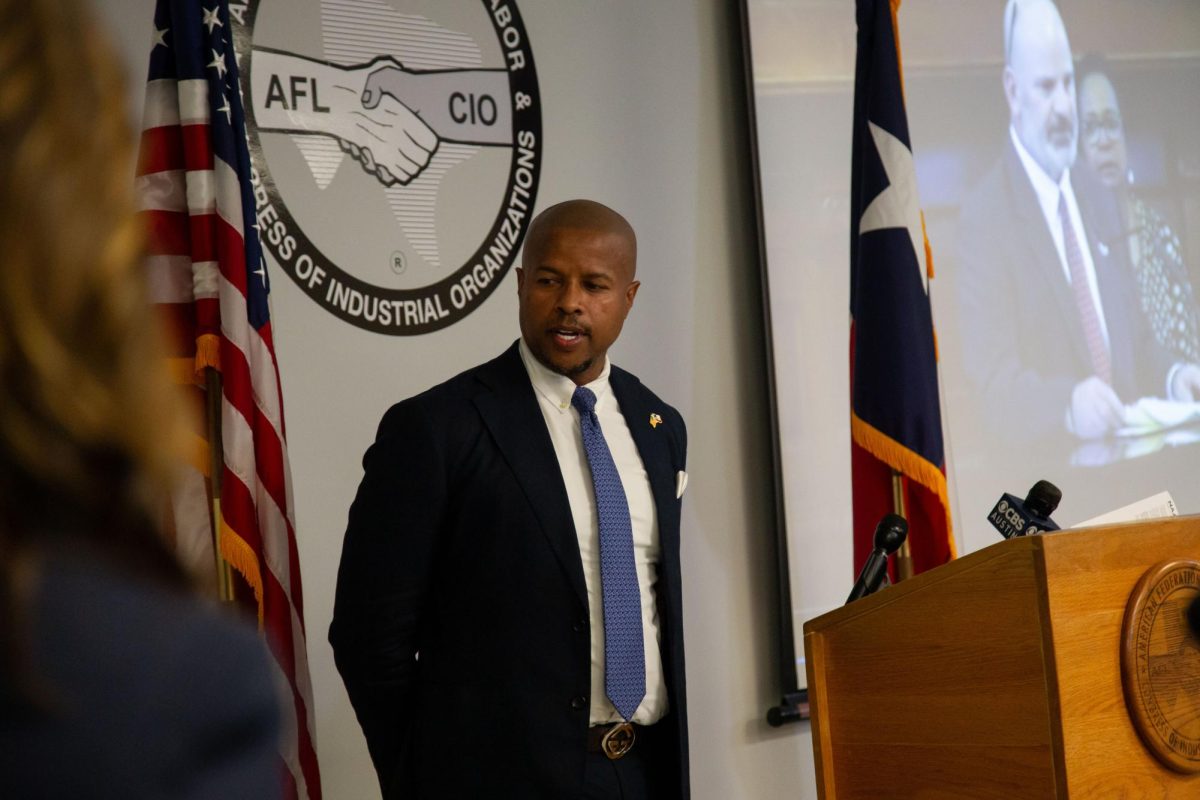As part of an initiative to increase undergraduate interest in research, the School of Undergraduate Studies hosted a lecture series called Research That Changes The World on Tuesday evening.
The lectures took place in a packed Bass Concert Hall, where three teams of researchers — representing the social sciences, natural sciences and humanities — took the stage to present their work. Each research team was composed of a student and professor who worked together to develop a project.
The presentations began with a short introduction by Dean Paul Woodruff, who acted as a moderator in the series and urged students to take advantage of the chance to impact their environment.
“These presentations were designed to be a common experience — almost a football game in a way, but academic,” Woodruff said. “We give you opportunities to change, and that gives you the chance to change the world.”
The lecture series kicked off with a presentation by sociology and psychology professor Robert Crosnoe and UT sociology alumna Natalie Raff about their work on the National Institute of Child Health and Human Developments’ case study of the effects of parental involvement in 1,364 children observed from birth to about 20 years of age.
“This was really a great time for me, and I was able to become part of research and work on a different variety of projects and research skills,” Raff said. “I urge all of you to explore what UT has in terms of research.”
Brent Iverson, chair of the Department of Chemistry and Biochemistry, and Jennifer Maynard, assistant professor of chemical engineering, described their development of a successful cure for anthrax, which they claim is 20 times more powerful than the antibiotic developed by the Defense Advanced Research Projects Agency. As opposed to research done by large corporations that involve billions of dollars, huge teams and decades of research, this project utilized a small cash amount and only about three researchers, Iverson said.
“It’s hard to imagine working in a lab,” Iverson said. “It’s sort of like an apprenticeship. You’re mixing things, stirring things, heating things — most of the time, it doesn’t work out, and you’re going back to your professor and asking for ideas. You’re thinking about all of these factors, and in these failures is where you learn.”
The last presentation was given by English professor James Loehlin and senior English major Isto Barton, who presented their research on the effect of performance in learning Shakespeare. As Barton acted out scenes from “Richard III”, Loehlin described the psychology of Barton’s character and how watching the performance resulted in a different understanding of the play than simply reading it.
Finally, the floor was open to questions from a select group of honors students. The night ended on a question from Woodruff, who asked if the heavy lifting of work was done by undergraduate students. The answer from Iverson was “an emphatic yes.”
Printed on Wednesday, September 14, 2011 as: Lectures encourage student research.



















